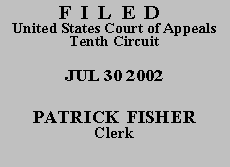

| WILLIE LEE EMMITT, JR.,
Petitioner - Appellant, v. TWYLA SNIDER, Warden; ATTORNEY GENERAL OF THE STATE OF OKLAHOMA, Respondent - Appellee. |
|
Willie Lee Emmitt, Jr., a state prisoner, requests a certificate of appealability, required by 28 U.S.C. § 2253(c)(2) for further consideration of his case. He wishes to appeal from the dismissal of a habeas corpus petition he brought in the federal district court under 28 U.S.C. § 2254(d). His petition simply restates arguments considered and rejected by the Oklahoma Court of Criminal Appeals, the federal magistrate judge, and the federal district judge. Like all who have previously considered his arguments, we find them without merit.
Mr. Emmitt was convicted of four drug-related offenses, after the former conviction of two or more felonies involving controlled dangerous substances. He was sentenced to forty years' imprisonment, and his conviction and sentence were affirmed on direct appeal.
Mr. Emmitt subsequently sought federal habeas relief on the same nine grounds argued in his state appeal: (1) a due process violation based on the prosecution's presentation of a co-defendant's perjured testimony; (2) the effect the trial judge's private conversation with a former attorney for Mr. Emmitt and eventual exclusion of the co-defendant's written statement on his rights to confrontation, cross-examination, counsel, and an unbiased judge; (3) the trial court's failure to give proffered jury instructions; (4) the trial court's allusion to Mr. Emmitt's decision to exercise his right not to testify; (5) the alleged bias of the trial judge; (6) a double jeopardy violation, by allowing conviction of possession of methamphetamine with intent to distribute and also conviction of maintaining a dwelling house where controlled dangerous substances are kept; (7) prosecutorial misconduct; (8) cumulative error based on state law violations; and (9) ineffective assistance of trial counsel.
A federal court may not grant a writ of habeas corpus on any claim that was adjudicated on the merits by a state court unless the adjudication:
(1) resulted in a decision that was contrary to, or involved an unreasonable application of, clearly established Federal law, as determined by the Supreme Court of the United States; or
(2) resulted in a decision that was based on an unreasonable determination of the facts in light of the evidence presented in the State court proceeding.
28 U.S.C. § 2254(d); see also Williams v. Taylor, 529 U.S. 362, 412-13 (2000).
In Mr. Emmitt's case, the magistrate judge carefully analyzed each of the claims under the appropriate standard and recommended that all claims be denied on the merits. After consideration of Mr. Emmitt's objections, the district court adopted the recommendation and denied the petition. Later, it denied Mr. Emmitt's request for certificate of appealability (COA).
To be entitled to a certificate of appealability, Mr. Emmitt must make "a substantial showing of the denial of a constitutional right." 28 U.S.C. § 2253(c)(2). He must demonstrate that "reasonable jurists could debate whether (or, for that matter, agree that) the petition should have been resolved in a different manner or that the issues presented were adequate to deserve encouragement to proceed further." Slack v. McDaniel, 529 U.S. 473, 484 (2000) (quotations omitted).
We have carefully reviewed Mr. Emmitt's brief, the district court's disposition, and the record on appeal. Nothing in the facts, the record on appeal, or petitioner's argument raises an issue which meets our standards for the grant of a certificate of appealability. For substantially the same reasons as set forth in the magistrate judge's thoughtful and thorough report and recommendation, dated January 4, 2001, and the district court's order dated August 9, 2001, we DENY petitioner's request for a certificate of appealability and DISMISS the appeal.
Entered for the Court
Circuit Judge
*. This order and judgment is not binding precedent, except under the doctrines of law of the case, res judicata, and collateral estoppel. The court generally disfavors the citation of orders and judgments; nevertheless, an order and judgment may be cited under the terms and conditions of 10th Cir. R. 36.3.